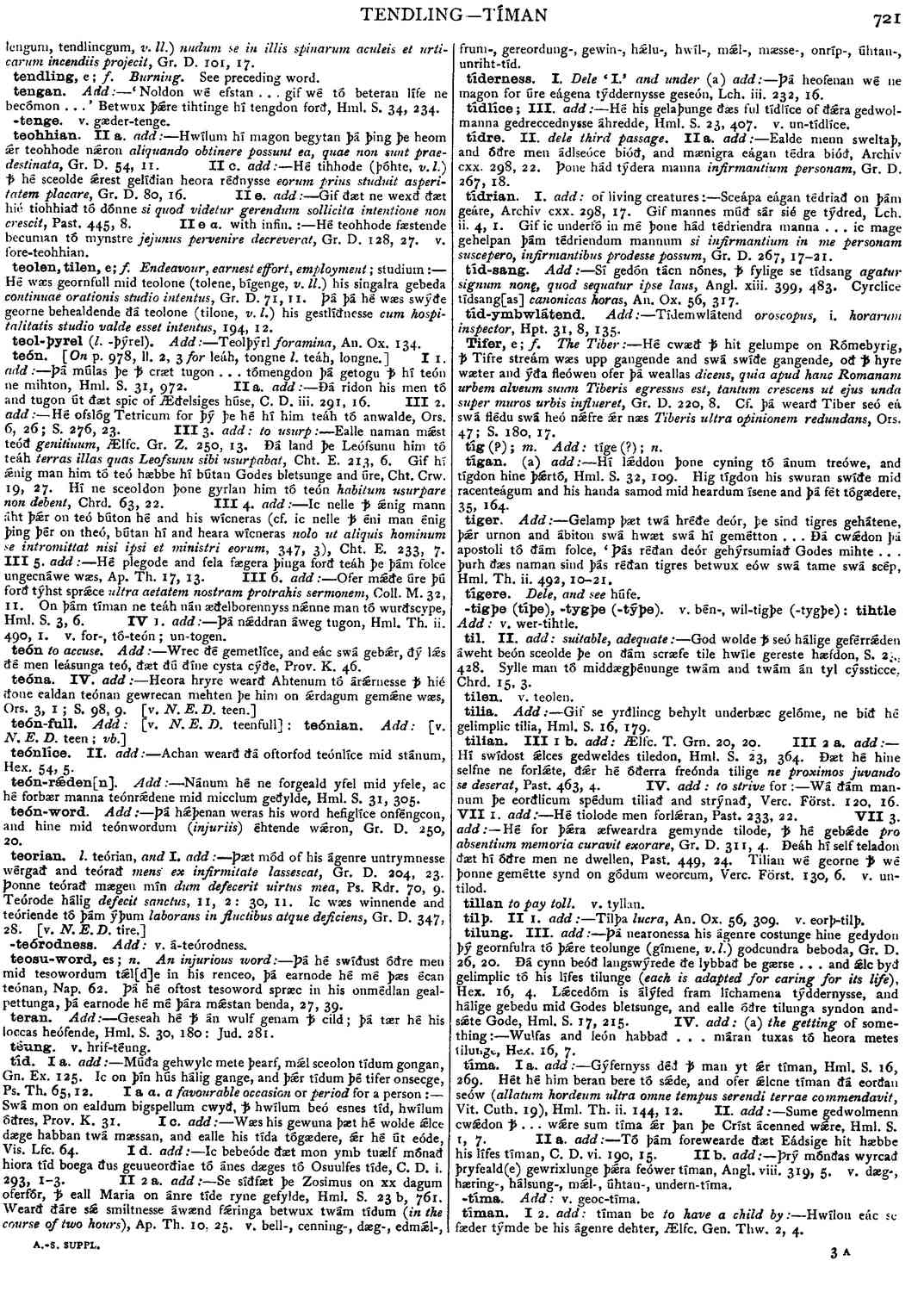tíd
-
Múða gehwylc mete þearf, mǽl sceolon tídum gongan,
- Gn. Ex. 125.
-
Ic on Þín hús hálig gange, and þǽr tídum þé tifer onsecge, Ps. Th. 65, 12. I a α. a favourable occasion or period for a person :-- Swá mon on ealdum bigspellum cwyð, ꝥ hwílum beó esnes tíd, hwílum óðres. Prov. K. 31. I c. add :-- Wæs his gewuna þæt hé wolde ǽlce dæge habban twá mæssan, and ealle his tída tógædere, ǽr hé út eóde, Vis. Lfc. 64. I d. add :-- Ic bebeóde ðæt mon ymb tuælf mónað hiora tíd boega ðus geuueorðiae tó ánes dæges tó Osuulfes tíde, C.D. i. 293, 1-3. II 2 a.
add
:-- Se síðfæt þe Zosimus on xx dagum oferfór, ꝥ eall Maria on ánre tíde ryne gefylde,- Hml. S. 23 b, 761.
-
Wearð ðáre sǽ smiltnesse áwænd fǽringa betwux twám tídum (
in the course of two hours
),- Ap. Th. 10, 25. v.
Bosworth, Joseph. “tíd.” In An Anglo-Saxon Dictionary Online, edited by Thomas Northcote Toller, Christ Sean, and Ondřej Tichy. Prague: Faculty of Arts, Charles University, 2014. https://bosworthtoller.com/59056.
Checked: 0